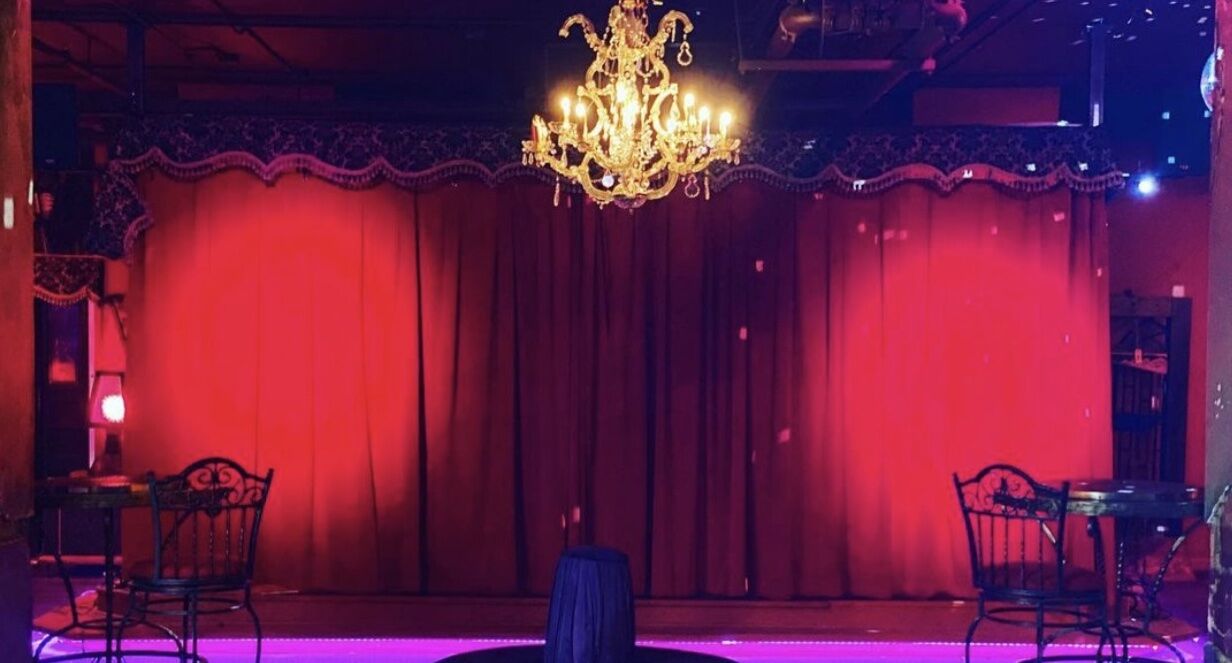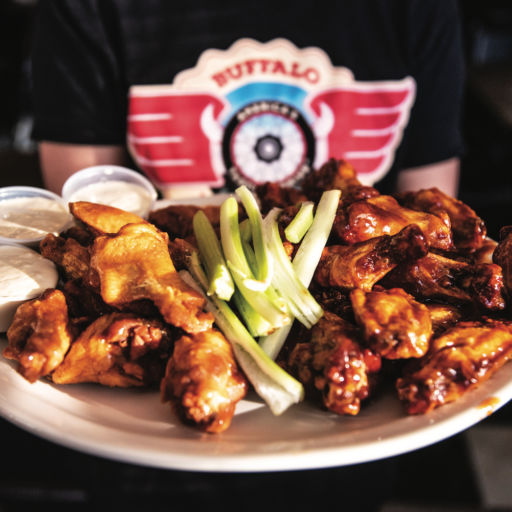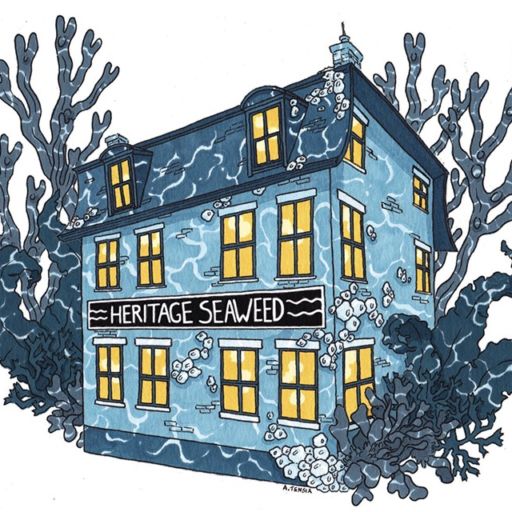A fun-sized Atlanta history bit: The city was built on and around railroad lines. When it was founded in 1837, the cobbled streets were home to Zero Mile, the literal end of the Western & Atlantic Railroad. (The marker is still there today, though preserved in a different spot.) As the city grew, congestion grew with it, and city planners looked upward for an answer. After all, no one needs trains whizzing by when you’re out for a stroll. A series of viaducts were built in the 1920s to separate the railroad lines from day-to-day life. These mini-bridges elevated new parts of Atlanta, while the rail lines remained below. That left this new underground section of Atlanta an afterthought to many. But bootleggers, who operated speakeasies during Georgia’s 28-year-long Prohibition, found a new home. Fast-forward to 1969 and the government redeveloped the area, now dubbed “Underground,” with saloons and bars — one even had live alligators — as it became known as Atlanta’s Bourbon Street. Three million a year visited at its peak in the 1970s.
Underground Atlanta closed in 1982, but was revived — yet again — in time for the 1996 Olympics, and this time it morphed into a more family-friendly underground mall. Restaurants and shops replaced the flowing booze and live alligators. The 400,000-square-foot property has changed hands half a dozen times since and was purchased in 2020 by Shaneel Lalani, a 43-year-old real estate developer in Atlanta.
Despite the many changes in the last century, Underground is having another moment in its long history. If it’s not yet obvious, fall is the perfect time for a weekend in the South, and Underground is an essential place to check in one of America’s essential cities. Here are nightlife places to visit next time you’re there.
Future

Spread across two levels and 14,000 square feet, Future is among the largest of Atlanta’s LGBTQ+ establishments. Opened in 2021 after pandemic delays, the club is the best place at Underground to dance into the night. Future has nightclub and cabaret spaces that host drag shows, including past contestants from “RuPaul’s Drag Race” and the Fantasy Girls, the club’s drag ensemble, plus DJs spinning house beats, and after-hours parties for the night owls.
Inner Space
This funky spot in a former storefront on the upper level of Underground is the hub for Atlanta’s “underground” music scene, with local and national artists covering all imaginable genres from DJs to folk tunes. Operated by artist Carl Janes, the DIY space sits under the glow of a disco ball.
The Masquerade
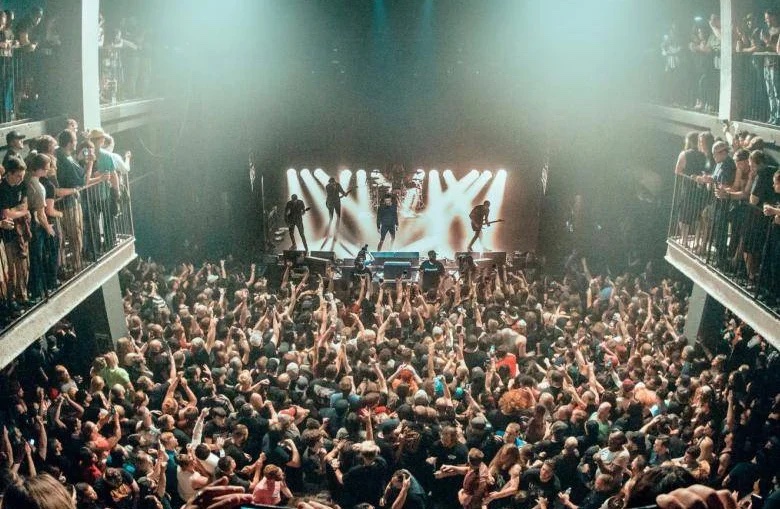
This mid-sized concert venue is located in Kenny’s Alley and offers four-concept spaces called Heaven, Hell, Purgatory and the just-opened Altar. Much of Atlanta’s rock music history has taken place within its walls, with performances by Nirvana, Radiohead, Nine Inch Nails and Atlanta’s own OutKast. The first Warped Tour happened in 1992 at the venue as well as the first Shaky Knees Music Festival, now one of the city’s top festivals. Its newest space, Altar, hosts smaller shows and also offers a small menu of food for the revelers, including burgers and snacks.
MJQ Concourse
When this dance club first opened in 1994, it was a mismatched furnished space in the basement of a derelict hotel, without as much as a sign to declare what was beyond the unmarked door. But despite several moves, MJQ remains a favorite of the late-night dance crowd for its eclectic tunes and performances by artists and DJs, which attract all ages. In 2024, the nightclub moved from its longtime home on Ponce de Leon Avenue to Underground, into an abandoned basement bar previously inhabited by those aforementioned gators.
Mom Said It’s Fine

On the far side of Underground, most of the buildings are filled by art galleries and creative spaces that host regular openings and events. Among them is Mom Said It’s Fine, or MSIF, which focuses on film, fashion, art and music. Run by artist and musician Mike Stasny, the exposed-brick space has a wide variety of offerings every weekend. MSIF joins its neighbors Artlanta and EMMCDEE galleries for First Friday at Underground, a community event where the galleries stay open late with drinks and a chance to mingle with the creators.
Pigalle Theater and Speakeasy
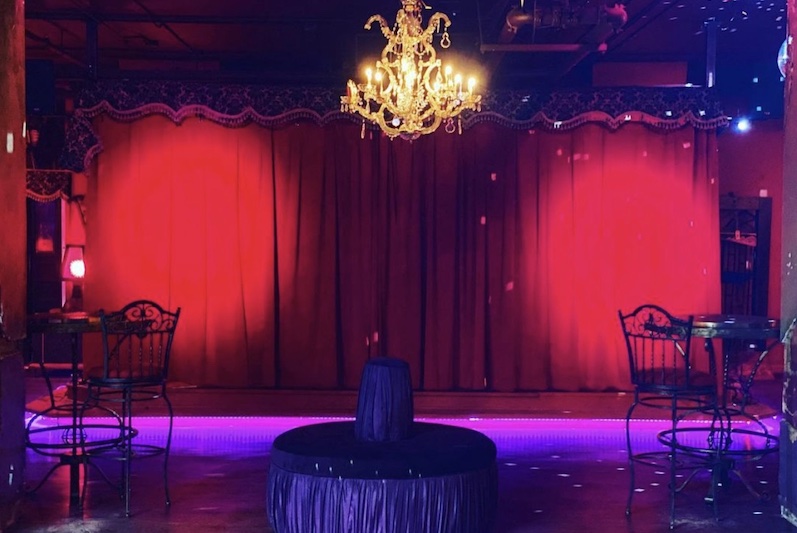
Until its closure after a 2019 fire, burlesque shows and events were a big part of the scene at Paris on Ponce, an eclectic antique store previously found in the Old Fourth Ward neighborhood. Owners Skip Engelbrecht and Nicolette Valdespino opened The Pigalle, named after one of the early bohemian districts in the City of Lights, to host burlesque and comedy on a red-lit main stage. Pigalle has a secret bar for absinthe drinks as well as an antiques-filled lounge, which includes a balcony overlooking the main thoroughfare of Underground.


